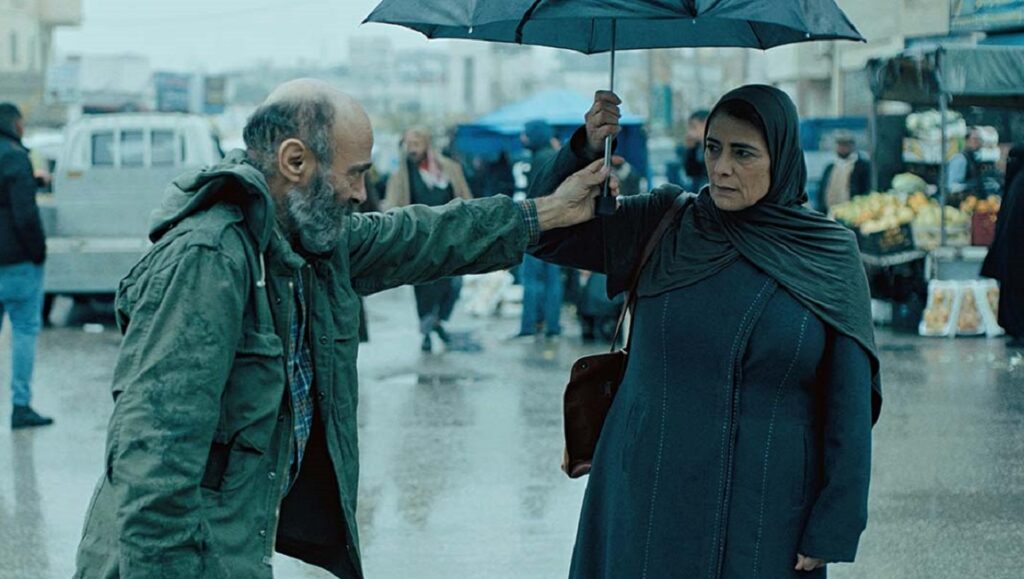Gaza Mon Amour finds inspirations in canonical “Mon Amour” films, but takes care to emphasize the present moment and the wya images ferment under occupation.
Arab and Tarzan Nasser’s finely-crafted romance, Gaza Mon Amour, invokes the sensibilities of a fairy tale as a means to cultivate grand gestures of sentimentality, aided by orchestral cues and sweeping wide shots — akin to the early romanticism of melodrama — and thus clearly defines the film’s trajectory. Issa (Salim Dau), a fisherman whose nightly trips into the IDF-surveilled and quartered Mediterranean allow for a consistent livelihood, falls quietly in love with seamstress Siham (Haim Abbass). His steady attempts to court her are disrupted by the very sudden and mysterious accident of fishing an ancient statue out of the sea. From here, Issa’s romantic pursuits become unfortunately complicated by bureaucratic meddling, as knowledge of the statue’s recovery places Issa directly within the State’s crosshairs. Unfurling from this intimate chaos is the patient monotony of day-to-day fatigue, as well as the more specific, locational exhaustion of being situated between repressive governance and oppressive occupation.
The Nassers’ emphasize a clear dissonance between the film’s early romantic idyll and its geopolitical circumstance, and, from a western perspective, it’s the most evocative element at play. Gaza gradually distills its clear conflicting sensory elements — the utopian ideation of emigration and always-encroaching violence — into a kind of realism, morphing these dimensions of lived-in perspective into the shape of cinema: specifically, the seduction of escapism and the amorous banalities that follow this kind of tale. Of course, this reconfiguration is firmly rooted in what is a perpetually imposing environment, pressurized and inescapable, but gleefully ignored within the familiar beauty of a love. All of this is filtered through a longing for the quotidian to expand into something more, where tribulation can be transformed into mere absurdity, and where lovers can laugh in the face of such painful realities; in their version of a love story, the Nassers’ use cinema’s ability to abstract rather than reflect. Gaza Mon Amour is a title that rightfully recalls Resnais’ meditation on trauma and memory, but where he and Duras sought the irreconcilability of identity under war’s residue, the Nassers emphasize the present moment and the way images, beautiful and otherwise, ferment under occupation.
Originally published as part of TIFF 2020 — Dispatch 6.


Comments are closed.